“A Heroine’s Journey,” Lauren Groff’s “Vaster Wilds”
The novel is full of Groff’s typical flourishes of poetic genius; the prose, however, written in a deliberately old-fashioned way to reflect the Elizabethan era, can be as slow-moving as the girl’s tortuous journey. Aside from that, I had one other beef with the novel. Even though the girl has lived in the wilds for decades, most of the story unfolds in the first few weeks of her journey. That is followed by a compression of her exploits for the following several decades.
You can read my review of Lauren Groff ‘s Vaster Wilds in America magazine by clicking the image below.

You can buy Lauren Groff ‘s Vaster Wilds at Barnes & Noble.
Andre Dubus’s “Such Kindness”
Although Dubus piles a lot of hardship on Tom, he manages to avoid over-sentimentality. The story, told in the present tense, begins as Tom, his neighbor Trina and her friend Jamie make their getaway with the trash from the home of the banker who issued Tom the adjustable-rate mortgage
You can read my review of Andre Dubus’s Such Kindness in America by clicking the image below.

You can buy Andre Dubus’s Such Kindness at Barnes & Noble.
Richard Bausch’s “Playhouse”
As you might guess, a novel about a theater called “The Globe” will likely include Shakespearean-like knaves, fools, villains, and flawed heroes. Playhouse includes them, but there’s no play within a play here. Divided into six parts, the traditional third-person story is told from the points of view of Thaddeus, Malcolm, and Claudette. There are few, if any, post-postmodern experimental shenanigans here. Instead, Bausch, that Old Lion of Literature, who’s won many awards for his long and short fiction, is a consummate realist as a storyteller, and, as I’ve said in the past: No one is better at realistic storytelling than Bausch.
You can read my review of Richard Bausch’s Playhouse in The Brooklyn Rail by clicking the image below.
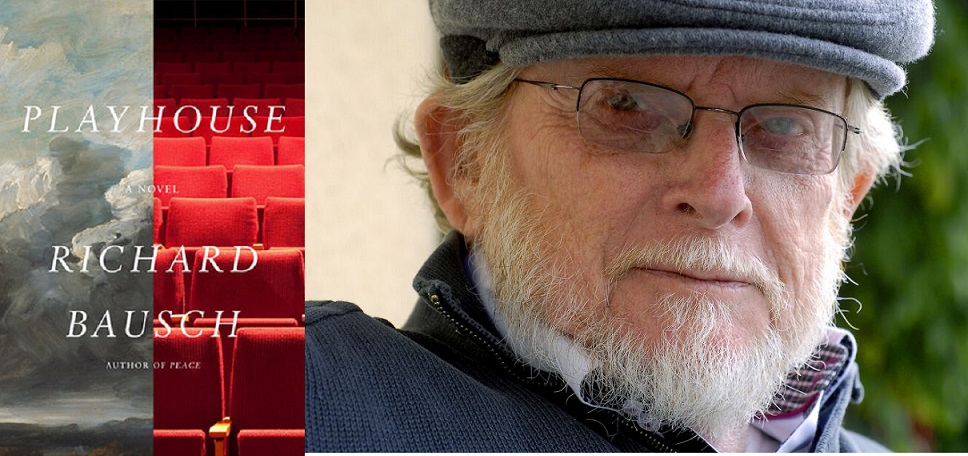
You can buy Richard Bausch’s Playhouse at Barnes & Noble.
A Tribute to a Teacher: “Elizabeth Finch,” by Julian Barnes
“Unless you are a history lover with a zeal for reading about the church and the early Roman Empire, Neil’s essay creeps along in a petty pace until the last syllable of part two. This may be rigorous, but is it fun?”
You can read my review of Julian Barnes’s Elizabeth Finch in America magazine by clicking the image below.
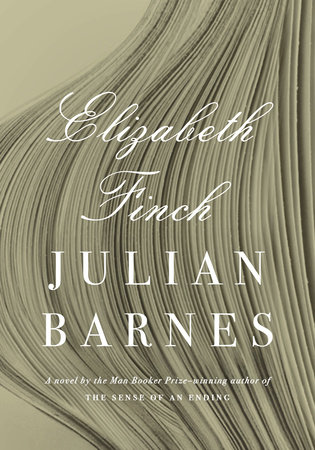
You can buy Julian Barnes’s Elizabeth Finch at Barnes & Noble.
Charles Baxter’s “Wonderlands”
Baxter’s books about writing,including this one, are not manuals of style, simplistic guides to writing, or unsophisticated combinations of memoir and prose writing advice for every goddamn…like Stephen King’s On Writing.
You can read my review of Charles Baxter’s Wonderland in The Brooklyn Rail by clicking the image below.

You can buy Charles Baxter’s Wonderland at Barnes & Noble.
Ten Tales of Dubliners: “Life Without Children,” by Roddy Doyle
The Dubliner Roddy Doyle often depicts the lives of ordinary working-class Irishmen who enjoy drinking a pint—or two, or more—in his stories. In his last novel, Love, two old friends traded stories and memories over several drinks in the pubs of Dublin. But Doyle, who won the Booker Prize in 1993 for his novel Paddy Clarke Ha Ha Ha, is a serious bloke whose Love was really about love and friendship, as well as the love of drink.
You can read my review of Roddy Doyle’s Life Without Children in America magazine by clicking the image below.

You can buy Roddy Doyle’s Life Without Children, at Barnes & Noble.
Steve Yarbrough’s “Stay Gone Days”
I find Yarbrough a wonderfully classic storyteller in the manner of other writers, like Richard Bausch, Rick Bass, and T. C. Boyle. Still, Yarbrough’s story is filled with postmodernist touches—flash-forwards and an element akin to Charles Baxter’s metafictional technique in The Soul Thief, which is more than a story within a story: it is the story.
You can read my review of Steve Yarbrough’s Stay Gone Days in The Brooklyn Rail by clicking the image below.

You can buy Steve Yarbrough’s Stay Gone Days at Barnes & Noble.
Megan Mayhew Bergman’s “How Strange a Season”
Women of all sorts populate this book: artists, entrepreneurs, shopkeepers, and environmentalists, each realistic in strange and memorable ways. To re-coin Harvard professor Laurel Thatcher Ulrich’s phrase: “Well-behaved women seldom make good literature.”
You can read my review of Megan Mayhew Bergman’s How Strange a Season in The Brooklyn Rail by clicking the image below.
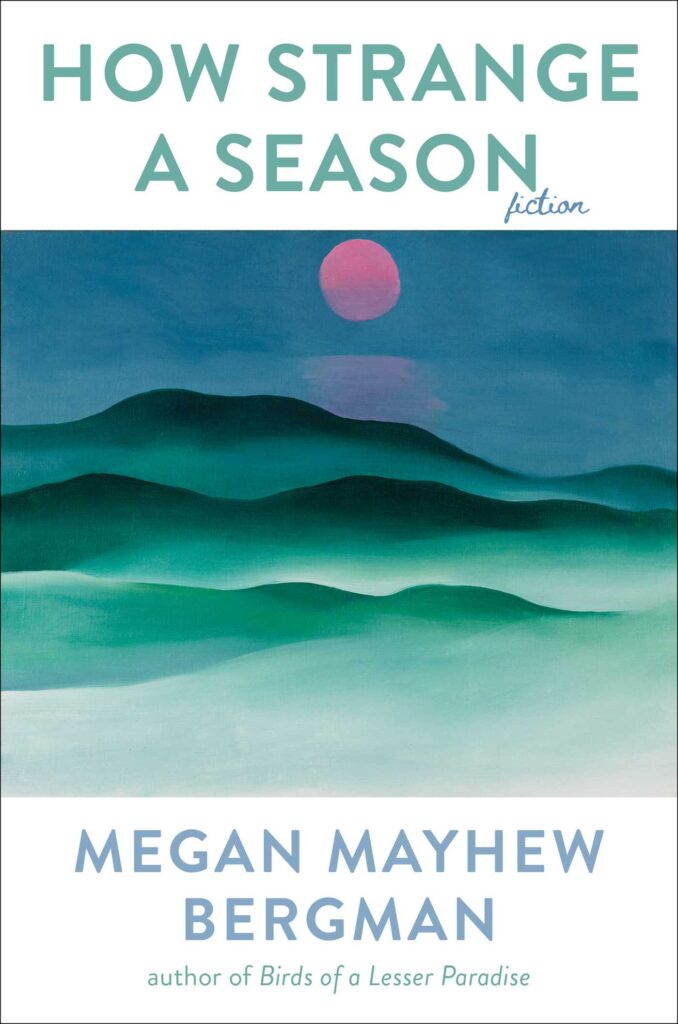
You can buy Megan Mayhew Bergman’s How Strange a Season at Barnes & Noble.
Claudia Durastanti’s “Strangers I Know”
Durastanti intends this disjointed state of narrative and calls it “shapeshifting text.” This heterodox book breaks many literary conventions, making it occasionally hard to follow. Orthodoxy, unlike it was for William Warburton, isn’t my doxy, but this heterodoxy can get confusing and sometimes paradoxical.
You can read my review of Claudia Durastanti’s Strangers I Know in The Brooklyn Rail by clicking the image below.

You can buy Claudia Durastanti’s Strangers I Know at Barnes & Noble.
John Banville’s April in Spain
…But this is a crime drama, not a comedy of manners. So, Banville opens the story in London with the gunsel Terry Tice, who “liked killing people.” He also liked collecting new words like gunsel, “a word Terry had picked up from some old movie, he couldn’t remember which one. He liked it. Terry the gunsel.” I’ll bet the movie was The Maltese Falcon (1941). “Let’s give ’em the gunsel,” Spade tells Gutman near the end. Although Terry imagines himself like Richard Widmark’s Fabian in Night and the City (1950), he’s more like Elisha Cook Jr.’s Wilmer the gunsel: a killer—short, slight, and hot-tempered; he’s not much of a planner, but not the usual eejit, either.
You can read my review of John Banville’s April in Spain in The Brooklyn Rail by clicking the image below.
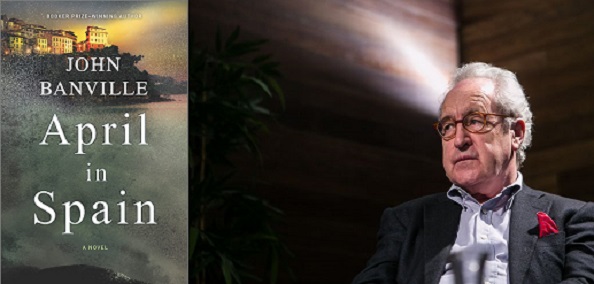
You can buy John Banville’s April in Spain at Barnes & Noble.
T.C. Boyle’s Latest “Talk To Me,” Communicating With Apes
Sam [the chimp] doesn’t verbalize, but he communicates in sign language like the primates of those decades-old experiments did. Boyle gives Sam his own chapters that exuberantly brachiate throughout the novel like a chimp swinging from tree to tree. It might seem peculiar to write a story partly told from the viewpoint of a chimp, but stories about anthropomorphized animals have crawled, flown, and swum around fictional worlds for centuries. Aesop wrote fables about tortoises, foxes, and crows. George Orwell satirized society with talking pigs and ravens in Animal Farm. More recently, Jane Smiley’s horse, dog, and birds each have tails to talk about in her Perestroika in Paris.
You can read my review of T.C. Boyle’s Talk To Me in The Boston Globe by clicking the image below.

You can buy T.C. Boyle’s Talk To Me, at Barnes & Noble.
“Matrix,” by Lauren Groff
Lauren Groff’s latest novel Matrix is a lyrical blend of historical fiction and myth-making that takes place in a nunnery during the mid-12th and early 13th centuries, the time of the Crusades. The novel gives Groff the opportunity to celebrate and hypothesize about the life of her “beloved Marie de France,” an actual medieval writer who was France’s first female poet.
You can read my review of Lauren Groff’s Matrix in The Brooklyn Rail by clicking the image below.
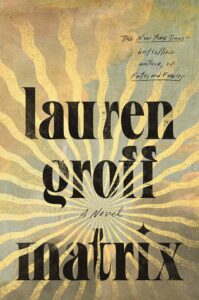
You can buy Lauren Groff’s Matrix at Barnes & Noble.
“Morningside Heights,” by Joshua Henkin
Henkin’s third-person narrative depicts Spence as a successful professional: a young “rock star” (though he objects to the term) of the Columbia English department. Yet, nearly from the beginning Henkin directly foreshadows Spence’s sickness: “Years later, when Spence got sick,” Henkin subtly forewarns the reader a few times; and he adroitly manipulates the reader into an understanding of the nature of Spence’s illness even before his family does.
You can read my review of Joshua Henkin’s Morningside Heights in The Brooklyn Rail by clicking the image below.
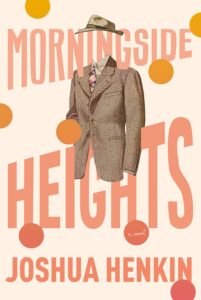
You can buy Joshua Henkin’s Morningside Heights at Barnes & Noble.
Jim Shepard’s “Phase Six”
A tightly-written, well-researched, and suspenseful novel, Phase Six is set about five years after COVID-19. The story begins on the western coast of Greenland in the Disko Bay area during a burial in a village called Ilimanaq, where people are dying from an unknown virus or bacteria—no one is quite sure.
You can read my review of Jim Shepard’s Phase Six in The Brooklyn Rail by clicking the image below.
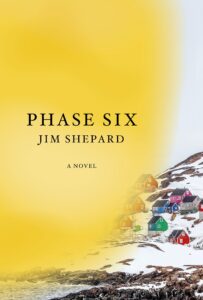
You can buy Jim Shepard’s Phase Six at Barnes & Noble.
Rachel Cusk’s “Second Place”
M dwells on her strained relationship with L throughout the story.
There is no particular reason, on the surface, why L’s work should summon a woman like me, or perhaps any woman—but least of all, surely, a young mother on the brink of rebellion whose impossible yearnings, moreover, are crystallised in reverse by the aura of absolute freedom his paintings emanate, a freedom elementally and unrepentingly male down to the last brushstroke.
M even says that “‘second place’ pretty much summed up how I felt about myself and my life.”
You can read my review of Rachel Cusk’s Second Place in The Brooklyn Rail by clicking the image below.
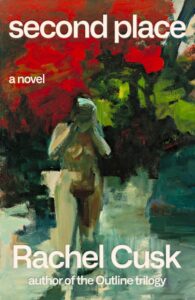
You can buy Rachel Cusk’s Second Place at Barnes & Noble.
Caleb Azumah Nelson’s “Open Water”
And although the protagonist (and presumably Nelson) is a fan of the writer Zadie Smith and her novel, NW set in north-west London, it is James Baldwin who is the character’s and the author’s greatest inspiration. He even calls Baldwin Jimmy when he quotes from Baldwin’s Notes of a Native Son: “I want to be an honest man and a good writer.” It’s a sentence that Nelson and his character repeat twice. Real-life similarities between author and character are sometimes frowned upon as artistic weakness, but the connection here, whether feeling or fact, is valid and powerful.
You can read my review of Caleb Azumah Nelson’s Open Water in The Brooklyn Rail by clicking the image below.
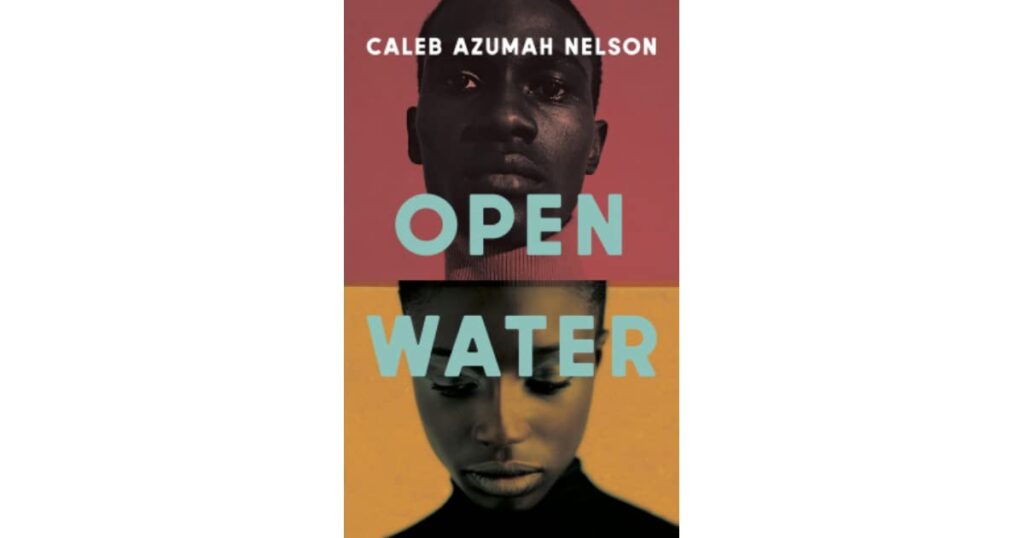
You can buy Caleb Azumah Nelson’s Open Water at Barnes & Noble.
This Thing called Life in Elizabeth McCracken’s “The Souvenir Museum”
In McCracken’s dramatic and often humorous stories you’ll find a goluptious coterie of eccentric and fascinating, if not entirely likable, characters whose stories unfold in a steady stream of exquisite writing. Evocative and often droll turns of phrase concoct mental images of shoes that are “damp as oysters,” voices brew like “hot cider,” flesh can be “so fair-skinned as to be combustible,” and the “hatred of castoffery came upon her like an allergy.” Inanimate objects come to life, too. A hotel named “The Narcissus” sits “on the edge of a lake and admired its own reflection” and skies are as “mild as a milk-glass rabbit.”
You can read my review of Elizabeth McCracken’s The Souvenir Museum in The Boston Globe by clicking the image below.
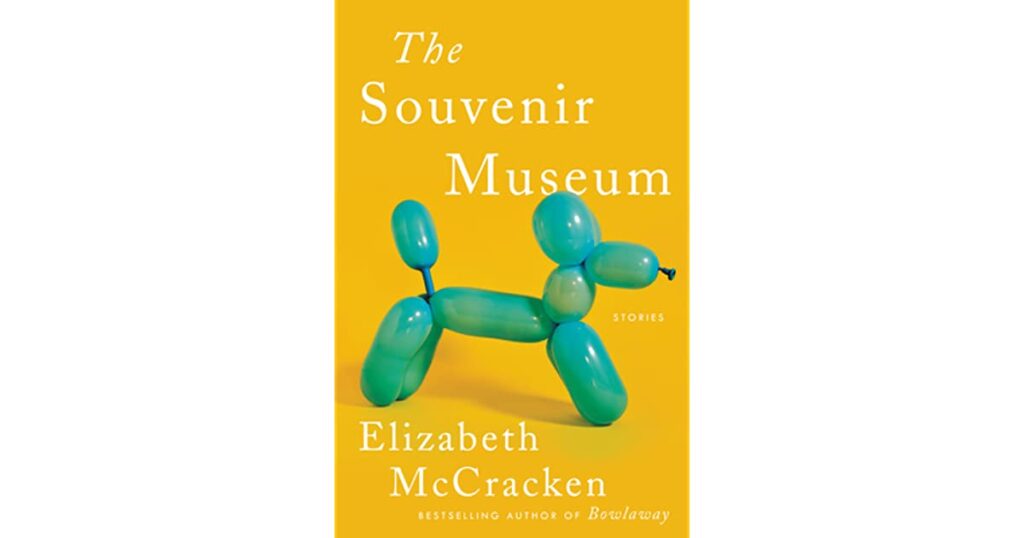
You can buy Elizabeth McCracken’s story collection, The Souvenir Museum at Barnes & Noble.
William Boy’s “Trio”
Boyd has written nearly a score of novels, plus three plays and screenplays, and he’s produced five collections of stories telling us what people are actually like. In Trio, his 16th novel, Boyd reveals the inner workings of human beings—well, actors, producers, directors, and writers, anyway—in an intriguing story about showbiz folks that soon involves British Special Branch, the American FBI, and possibly the CIA. Told, of course, in three parts, Trio, is prefaced with two epigraphs, one of which is an excerpt from an Anton Chekhov short story: “Most people live their real, most interesting life under the cover of secrecy.”
You can read my review of William Boyd’s novel Trio in The Brooklyn Rail by clicking the image below.
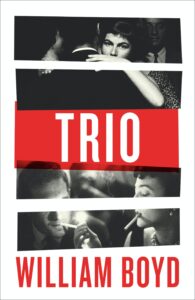
You can buy William Boyd’s novel Trio at Barnes & Noble.
Jonathan Lethem’s The Arrest
Although the publisher says this novel is not a post-apocalyptic or dystopian story, Lethem not only makes Journeyman an expert on post-apocalyptic and dystopian stories, he gives the duo a “pet project, one of Todbaum’s supply of ‘killer pitches,’” a science fiction movie called Yet Another World. ….Todbaum wants Journeyman to pillage scenes for Yet Another World from Walter Tevis’s book Mockingbird, and other books like Earth Abides, Dr. Bloodmoney, Station Eleven, and A Canticle for Leibowitz, and pilfer dystopian scenes from writers like Riddley Walker, Kurt Vonnegut, Margaret Atwood, and Stephen King. Pilfering, modifying, and referencing dystopian scenes is pretty much what Lethem does in his book. Readers might get a literary rush out of Lethem’s dropping the names of long-time acknowledged heavyweight champs like Vonnegut, Atwood, and King. But it was probably even more fun for Lethem, through Todbaum, to take a shot at old Cormac McCarthy and his dystopian, post-apocalyptic novel The Road. McCarthy’s fans probably won’t like reading: “If McCarthy were honest, he’d admit he wrote a campfire story, Sandman. Instead he inserts all this Old Testament horseshit. The world’s reduced and cleansed, the ambiguity scrubbed out.” Lethem’s is no country for old men.
You can read my review of Jonathan Lethem’s The Arrest in The Brooklyn Rail by clicking the image below.
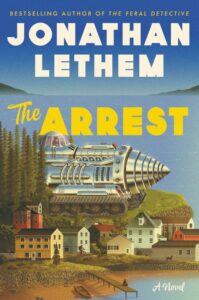
You can buy Jonathan Lethem’s The Arrest at Barnes & Noble.
Lost in Space in ‘Black Hole Survival Guide,’ by Janna Levin
Her “Survival Guide,” illustrated by painter and photographer Lia Halloran, is an exuberant, flashcard-size book of 13 chapters with, naturally, a black cover that draws you in, as it depicts an astronaut similarly attracted toward a mirror-like sphere, perhaps exploring it. Levin takes us on a virtual adventure to black holes, a safe trip that we can actually survive as long as we stay far enough away. Her writing is clear and so colloquial that it sometimes seems as though she’s right there chatting with you, telling a story in a conversation so compelling that you hardly notice the complexity of the actual physics. That’s her trick of talking about science to a lay audience. Levin writes, “I don’t know what it was like where you were…,” before telling the story of black holes as if you were pursuing one in its own territory like you’re the astronaut — you in your space suit on the book’s cover.
You can read my review of Janna Levin’s Black Hole Survival Guide in The Boston Globe by clicking the image below.
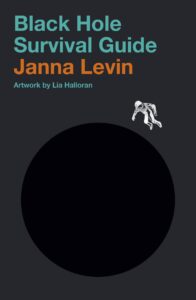
You can buy Janna Levin’s Black Hole Survival Guide at Barnes & Noble.

